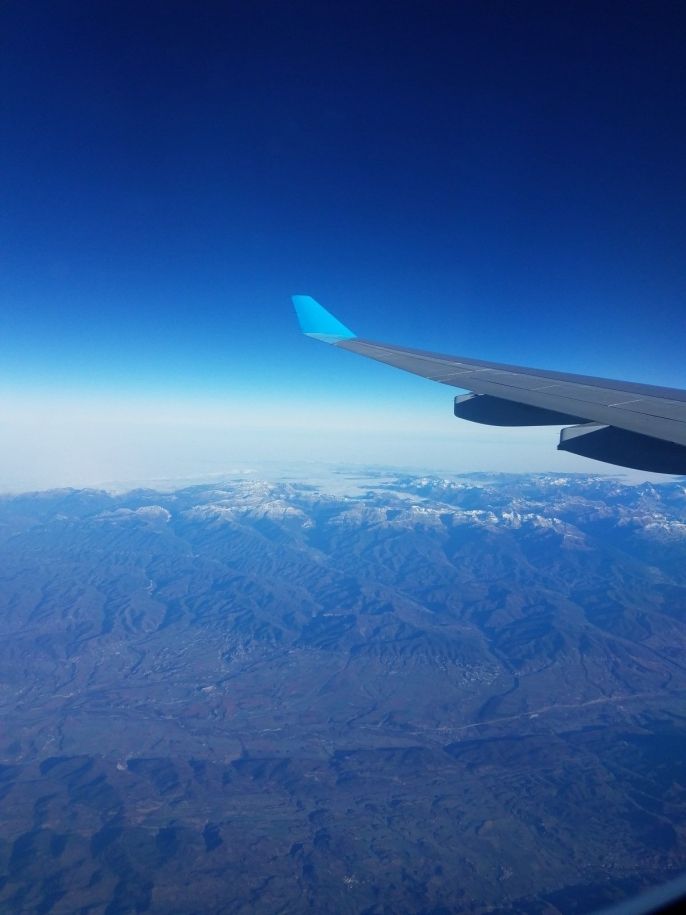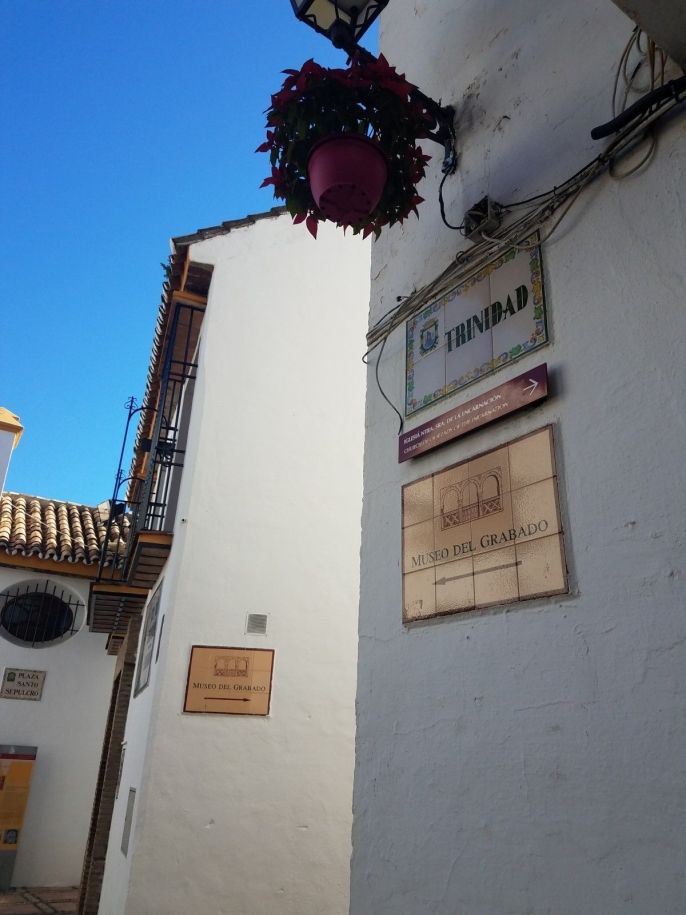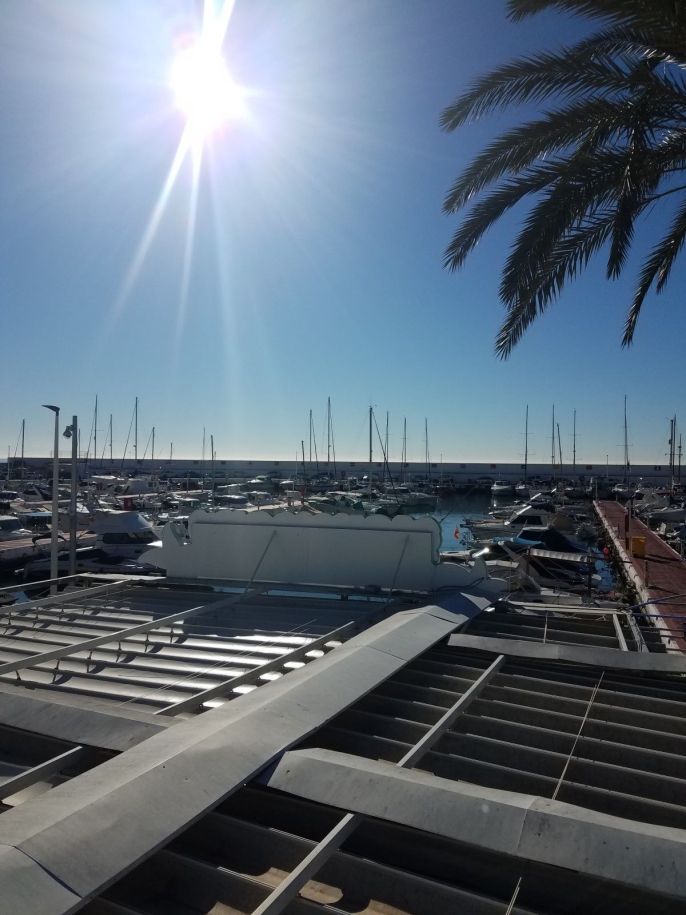Addressing Long-Term Culture Shock
This isn’t a vacation. This is life.
If MTV called a week ago, my episode would have been called “True Life: I Accidentally Moved to the South of Spain and I’m Not Thriving”. I’m reaping the rewards of my hard work for sure. Malaga is gorgeous, everyone at school has been exceptionally kind and helpful in getting me adjusted, some stores even speak English. But, the so-simple-but-so-painful but, is that it’s different, and sometimes I feel like I’m drowning. That seems impossible, right? Every day is sunny and perfect, but there are a lot of struggles that come with compounded culture-shock. I’m alone, everyone here lives their life different from me, I don’t have a bank account, the apartment search nearly broke me, I don’t have a gym to release my frustrations, and apartments don’t have heat because the sun keeps us warm, but the sun sets at night and it is cold.
Still, I have to swim, we all do. We, in that I’m not truly alone here. There are eighty-some new auxiliares de conversación in Andalucia this January alone. That doesn’t include the ones who started during the regular year-long program in August, or the auxiliares hired directly by the Junta de Andalucia (Andalusian government) or other third party companies like CIEE. We’re all going through the same motions, and are learning to sink or swim from the same experiences. Now that I’m into my fifth week here in Andalucia, I feel qualified to tackle those experiences with recommendations to make them a little less overwhelming.
Recommendations for the first few weeks
#1. Take everything one hour at a time. Don’t take everything one day at a time, because often communications take 24-48 hours to get back to you.
#2. Try to only tackle one big thing every day. If you need to open your bank account today and see two apartments, maybe push the bank account until tomorrow. It might feel like the end of the world, and that you need to expedite your assimilation into this culture, but if you overdo it and overwhelm yourself, you’re going to come crashing down.
#3. Remember you have a support system. Reach out to people if things get bad, but also recognize that you need to pull strength from within yourself to accomplish tasks.
Now for the specifics:
Finding an apartment
This could be the hardest thing you do as a new TEFL instructor. Regardless of where you are, there may be different values placed on renting or sharing apartments to foreigners. If you’re in a larger European city, you may be fine. Here in my pueblo, I was denied from apartments because the landlord didn’t know me or my family, knew I was not Spanish, or was worried my Spanish wasn’t going to be good enough.
Your best bet is to ask your school before you get there if they know of any rooms or apartments available. In the end, one of my teachers knew a woman with an apartment, and that connection bridged the gap for us.
Opening a bank account
CIEE had a relationship with a popular bank here and was able to set it up for us if we wanted (yes) so this was relatively painless aside from all the waiting. Expect most things to take two weeks longer than you planned.
Make sure you have a checking account in a large or international bank account like Chase or Wells Fargo before you leave. You’re going to need to transfer funds from this account to your international bank account. I recommend Transferwise because they give you the live currency exchange rate for your funds. However, if you have a smaller bank like I did, you have to do a separate transfer to get the money to Transferwise, and my bank ended up blocking the request for whatever reason
Making friends
You need a physical support system when living abroad, not just a digital one. While WhatsApp and FaceTime make maintaining relationships seamless, there is still a time difference, and a cultural gap. Family and friends may not understand what you’re going through, but fellow auxiliares or expatriates will. Put yourself out there, even if it’s terrifying, and I promise you will be on your way to making your new country a second home.
Food
I was lucky enough to develop food poisoning on my second day here, so it was an unpredictable hurdle I never thought I’d have to jump through. Produce isn’t abundant in Spanish culture, and because of this, food overall was perhaps the most difficult change for me. In the US, most people I know are avid meal preppers. This isn’t the style in Andalucia. Life is slower, so there’s time each day to prepare your large mid-day meal. This shift towards late lunches and later dinners of meats and breads was giant, but you just have to find what works for you. At school I heard nothing but good things about a supermarket everyone went to with great produce. Now I have balance, vegetables at home, and the delicious tapas of patatas, jamon, y queso when out to dinner.
Comfort food sometimes doesn't hurt either

Joining a gym
Spain is an active country. This was awesome, and something I hadn’t thought about when initially moving here. I love the gym, and didn’t want to lose that routine or my fitness, so seeing all the women in athleisure just like Boston was awesome. Again, I listened to my fellow teachers at school during break, explored everywhere in town, and eventually (today) found a place with classes for every type of workout Additionally, look into any free classes that may be offered in town. Both are wonderful ways to meet friends, because you already have something in common.
A key issue is that all classes are in Spanish, but it's also an opportunity to do something crazy. If you don’t speak a foreign language, no worries. Today I wasn't able to understanding 90% of what my spin instructor was saying, but I made it! Keep your ears open for frequently used words, and really just pay attention to what the instructor is doing.
Learning the language
Even if you know you’re fluent in the native language, there are going to be local phrases and slang that you don’t know. For example, when greeting someone here, everyone says “Buenas” instead of “Hola” or “Buenos Dias, etc.” It literally means “Good”, but to them, it means “Hey”. Don’t stress, time helps everything
If you don’t speak the language, there will be many opportunities, including meetups with other Expats in larger cities, courses led online, or in your town. Maybe even try asking a teacher to help you, and in return you could help them with their English?
Interacting with locals
I have the same advice as with learning local slang: time helps everything. In the beginning, be respectful of their culture. In Spain, use cash, try your hardest to speak their language every time, and don’t be overly smiley. You’ll learn quickly by their nonverbal cues. If you’re still at home in the US trying to prepare to move abroad, this is crucial time for you to brush up on learning about your country’s culture, common phrases, and communication styles.
Personal Travel
The second you touch ground in your new country, you might be hit with the travel bug, and go full force every weekend exploring your new country/continent. It might take awhile for you to get your footing, after all, you just moved to this new place, you want to explore it. Whatever you’re feeling is correct. Let your body adjust to your new life, and see how you’re feeling come the weekend (or weekend after that). It took me four full weeks to go on a trip because I didn’t feel ready, (also my wallet) and that’s okay. Moving abroad is a long-term decision for a reason, and you’re going to want to explore your new home either way.



